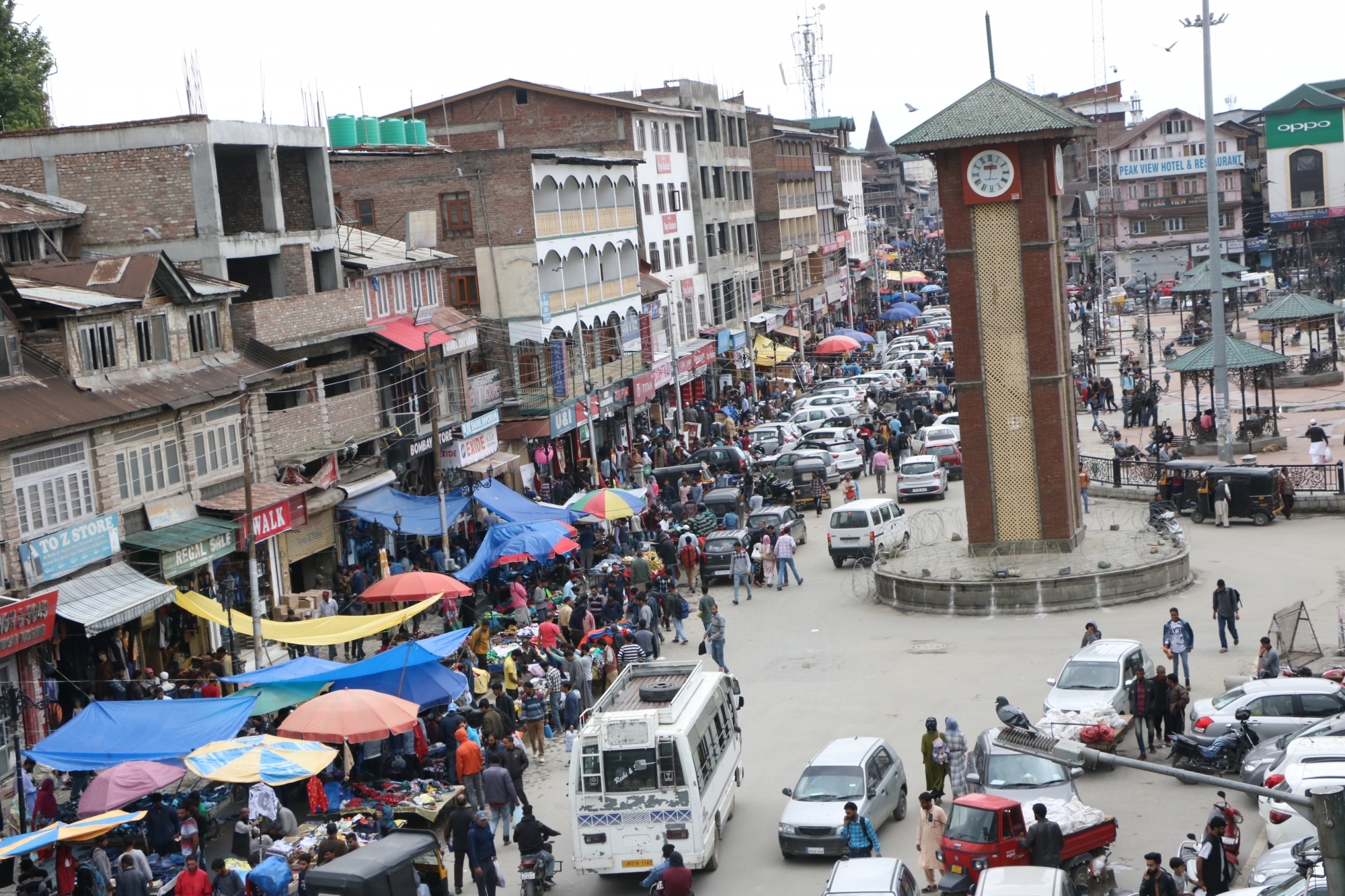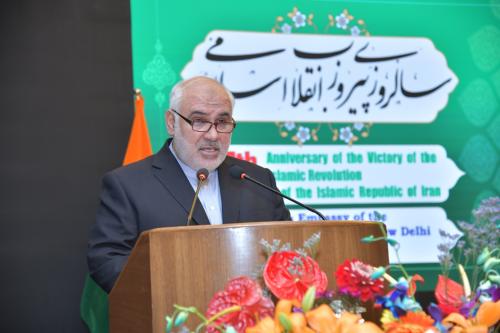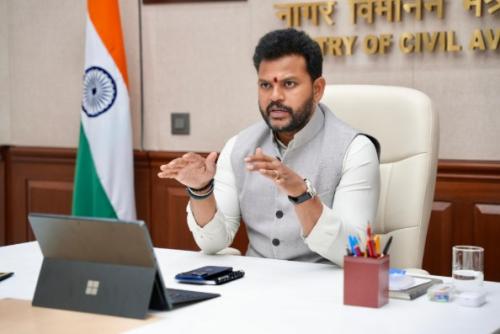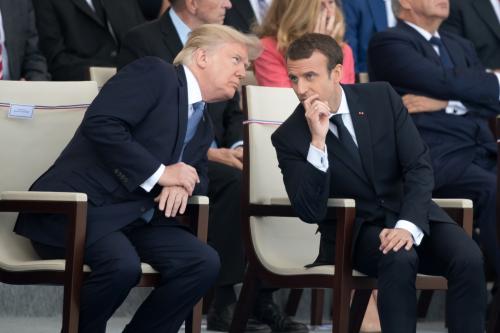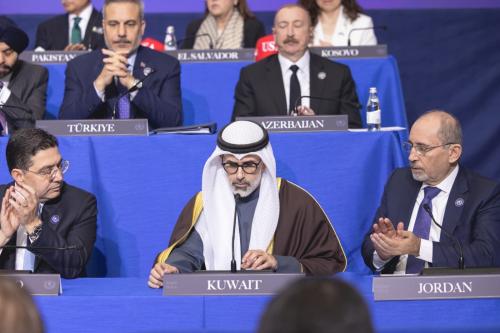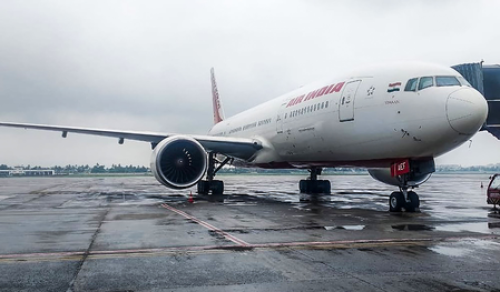BY RAJNISH SINGH New Delhi, Oct 8 (IANS) At a time when a lot of hue and cry is being raised over the abolition of special status to Jammu and Kashmir, there is a silent narrative in favor of the Center's historic decision which remains lost in the din. Articulating this narrative are some youth, few of whom do not want to come on record for security reasons. But there are others like Mir Junaid who are vocal about it. "Removal of Articles 370 and 35-A, which granted special status to Jammu and Kashmir, is not beneficial for those who were seeking 'autonomy' and 'self-rule' in the state," 27-year-old Junaid told IANS, in a veiled attack on the National Conference (NC) and the Peoples Democratic Party (PDP) which have been advocating the demand for 'autonomy' and 'self-rule', respectively. Hailing from Langate in Kashmir's Kupwara district, Junaid said: "I believe that the removal of Articles 370 and 35-A gave the people of Jammu and Kashmir a kind of liberation from political dynasts. The weaker sections of the society who are deprived will benefit from the move." Asked why some people were displaying anger if the Center's decision was positive, Junaid said: "Their shops have been shut and that is why they are showing resentment. Otherwise, Kashmir will be transformed into a world class socio-economic movement following the removal of Article 370." Clarifying that he was not affiliated to any political party, the youth activist said that he was "supporting" the Center's move because Home Minister Amit Shah had promised certain things on the floor of the Parliament during the debate over the abrogation of Articles 370 and 35-A. "The Home Minister said that it's for the development and welfare of Jammu and Kashmir. So we will be happy if the promises are fulfilled. The grounds on which the Center revoked Articles 370 and 35A need to be fulfilled. Shah also assured that statehood will be given back the moment normalcy returns to the Valley," said Junaid, who was in Delhi to meet some of his friends. Junaid also said that he had recently met Shah along with a delegation of Sarpanchs at the Home Minister's office here and "he has promised it". Hitting out at the political system in Jammu and Kashmir, Junaid said: "Removal of the Articles gave us the hope that our voice will be heard. Earlier, only the family members of certain political leaders got a chance in politics. But that is over now. Only those who have potential would now move ahead." "We will fight for the genuine rights of the people of Jammu and Kashmir, but it would be within the ambit of the (Indian) Constitution," he added. Referring to the restrictions imposed in Jammu and Kashmir since August 5 when the Center moved to revoke the special status to Jammu and Kashmir, Junaid said that people need to be patient as things are gradually getting normal. He added that the government should gauge the mood of the people by removing the clampdown on communication. Another youth activist, Touseef Raina (27), a resident of Baramulla who came to Delhi to take care of his ailing brother after passing 45 days in Kashmir following the revocation of the special status, said: "Article 370 was revoked by Parliament. If the purpose of the revocation is development, we want to see the development. Only time will decide if it is good or bad." Expressing his anger against the politicians of Jammu and Kashmir, Raina said they used Article 370 as a tool to contest the elections and "betrayed" the people of the state. "Over 70 to 80 per cent amendments were already made in the Article, but the politicians didn't inform us. We believed the leaders but they betrayed us. The Article was politically misused. If the government of India thinks that there would be development in Kashmir because of the removal of the Article, I welcome the step," he said. Raina also said that many people in Jammu and Kashmir are "not happy" after the revocation of Article 370, but they should give the government of India a "chance". "This is a political decision and we should give the government a chance. I wish the government would do whatever was not done in the past 70 years," he said. Raina stressed that the government should focus on jobs, education and health, and demanded that there should be IIMs and IITs in Jammu and Kashmir. "Kashmiri youth are very intelligent. Since many Kashmiri youth cannot afford education in Delhi, top educational institutes should come up in Kashmir. These youth can be the future of the country," Raina said. Giving the example of a Kashmiri girl named Zia, a resident of Baramulla district, Raina said that she graduated in computer science with distinction but is jobless now. "The government should restore the faith of such youth in the system which is a challenging task," he said. Speaking on the current situation in the erstwhile state, Raina said: "People are allowed to go outside their houses and it is wrong to say that there is curfew. There is no restriction in Jammu and Kashmir from the security forces or the government, but there is clampdown on communication. "I want to appeal to the Home Minister to lift the restriction on communication and restore it as soon as possible. "Many people have disagreement over the revocation of Article 370, but it doesn't mean that they should fight. If you don't like a thing, you should protest, but it should not turn violent." Talking about the politics in Jammu and Kashmir, Raina said the National Conference only gives chance to those who retire from the government jobs. "The youth should be given a chance to enter politics, but we are only chosen for stone pelting," he said. (Rajnish Singh can be reached at rajnish.s@ians.in)





